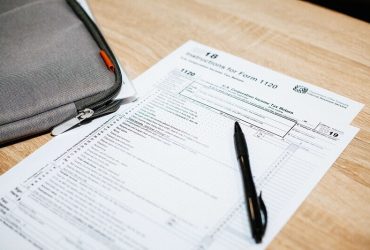Tax Deductions Demystified – What You Need to Know
Tax deductions are a key component of the tax code that allow individuals and businesses to reduce their taxable income, ultimately lowering the amount of tax they owe to the government. Understanding tax deductions is essential for maximizing tax savings and minimizing tax liabilities. In this article, we’ll demystify tax deductions by exploring the basics of deductions, common types of deductions available to individuals and businesses, and tips for claiming deductions effectively. Whether you’re a taxpayer navigating your personal finances or a business owner managing your company’s finances, knowing how tax deductions work can help you make informed decisions and optimize your tax situation.
Understanding Tax Deductions
Tax deductions are expenses that taxpayers can subtract from their gross income to reduce their taxable income, resulting in a lower tax bill. Deductions can be either above-the-line deductions, which reduce adjusted gross income (AGI), or below-the-line deductions, which reduce taxable income after AGI has been calculated. Common above-the-line deductions include contributions to retirement accounts, health savings accounts (HSAs), and self-employed health insurance premiums, while below-the-line deductions include itemized deductions such as mortgage interest, state and local taxes, and charitable contributions.
Common Types of Deductions for Individuals
For individual taxpayers, there are several common types of deductions that can help reduce taxable income and lower tax liabilities. These include deductions for mortgage interest, property taxes, medical expenses, charitable contributions, and state and local taxes. Taxpayers can choose to claim the standard deduction, which is a fixed amount set by the IRS each year, or itemize deductions by listing out specific deductible expenses. By comparing the standard deduction to their itemized deductions, taxpayers can determine which option results in greater tax savings and choose the most advantageous option for their situation.
Business Deductions
For businesses, there are various deductions available to offset business expenses and reduce taxable income. Common business deductions include expenses such as salaries and wages, rent or lease payments, utilities, supplies, travel expenses, and depreciation of business assets. Additionally, self-employed individuals and small business owners may be eligible for special deductions such as the qualified business income deduction (QBI) or the home office deduction. Keeping detailed records of business expenses and consulting with a tax professional can help ensure that all eligible deductions are claimed accurately and compliantly.
Tips for Claiming Deductions Effectively
To maximize tax savings and minimize tax liabilities, it’s important to claim deductions effectively and accurately. Keep organized records of deductible expenses throughout the year, including receipts, invoices, and documentation to support your claims. Stay informed about changes to the tax code and any new deductions or credits that may be available to you. Consider consulting with a tax professional or financial advisor to help navigate complex tax issues and ensure that you’re taking advantage of all available deductions. Finally, review your tax return carefully before filing to verify that all deductions have been claimed accurately and that you’re maximizing your tax savings to the fullest extent possible.
Tax deductions play a crucial role in reducing taxable income and lowering tax liabilities for individuals and businesses alike. By understanding the basics of deductions, identifying common types of deductions available, and following tips for claiming deductions effectively, taxpayers can optimize their tax situation and maximize tax savings. Whether you’re a taxpayer navigating your personal finances or a business owner managing your company’s finances, knowing how tax deductions work can help you make informed decisions and ensure compliance with the tax code. So take the time to familiarize yourself with deductions, keep organized records of deductible expenses, and seek professional guidance when needed to make the most of your tax deductions and achieve financial success.




